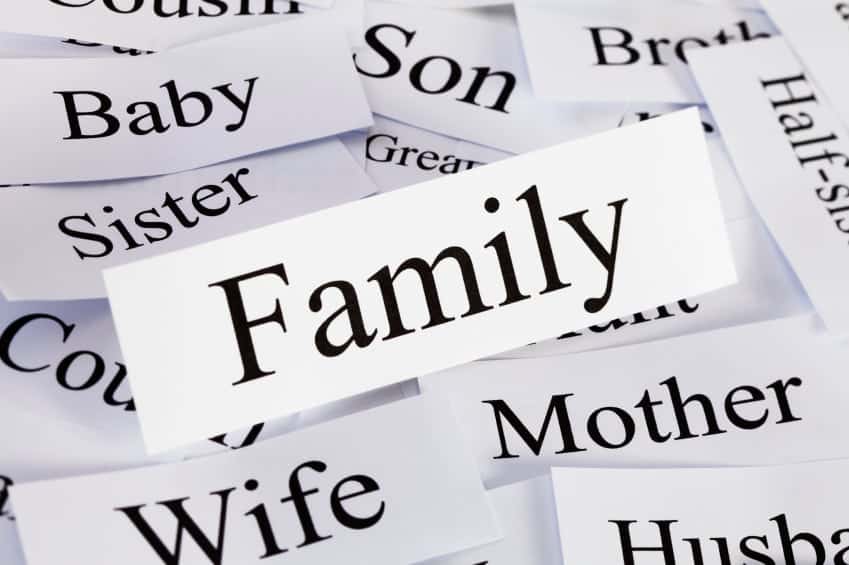Cohabitation and marriage: spot the difference
16th January 2015

Written by Katie McCann- Head of Family at Kuits Solicitors
The Cohabitation Rights Bill has recently received its second reading in the House of Lords. Created by Lord Marks, the Bill, if passed, would provide cohabiting couples with similar rights to those enjoyed by married people. Although these rights would not be identical to those that attach to marriage, it would allow, amongst other things, former cohabitants who lived together for at least a period of two years to apply to court for a financial settlement order.
Supporters of the Bill praise it for finally recognising that cohabiting couples have for years been exposed to vulnerability and the danger of being unprotected in the event that their relationship breaks down. Speaking on the subject, Steve Kirwan, who heads Resolution’s work on cohabitation law reform, states that the current law does not reflect modern society, but needs to: “More couples are living together than ever before […] a significant portion of the country are currently served by outdated and unfair laws.” Mr Kirwan feels so strongly about the need for cohabitees to be protected that he goes as far as saying that the Bill as it stands does not do enough to address the inequality of the current system.
Another avid supporter of rights for cohabitees is President of the Family Division, Sir James Munby. He commented: “Reform is desperately needed. How many more women are to be condemned to injustice in the meantime?” This opinion was initially shared by High Court Judge Sir Paul Coleridge, who believed that cohabiting women needed protection in the event that their relationships broke down. Why neither comment incorporates the equal threat posed to men in cohabiting relationships is another question entirely.
Despite his initial opinions, Sir Coleridge has now dramatically changed his mind and has stated that the provision of equal rights to cohabitees would send out the wrong message by giving the impression that marriage does not matter. His belief is based on the idea that if people are able to secure marital rights without having to actually marry, then marriage will quickly become redundant. And this, believes Sir Coleridge, would be a disaster. Statistics show that relationships between cohabiting couples tend to last for a shorter period than marriages and it has been estimated that only 36% of children born in 1997 to cohabiting parents are likely to live their entire childhood with both their natural parents, as opposed to 70% born to married parents.
The risk of marriage becoming redundant is not the only reason given by those who oppose the Cohabitation Rights Bill. A more straightforward argument is simply that the court is working on the assumption that cohabitees want these rights, when in fact many of them do not. Baroness Deech went as far as comparing the notion to forced marriage, stating: “It is an attack on the liberty of two people who have refrained from marrying. Either they have good reasons not to […] or they are trying out the relationship before cementing it.”
Baroness Deech’s argument is based on the concept that everyone in the UK has the freedom to marry if they wish to and, in fact, choosing not to marry is actually an active decision. The law should therefore respect this choice, rather than forcing people to be subjected to laws that they have actively been trying to avoid.
Of course, it must be highlighted that the above only represents a proportion of cohabitees – indeed, there are others who desperately want the security that marriage brings, without having to marry. There are many who may fall into this category, including those who would marry but their other halves do not wish to, those who think marriage is outdated and those who cannot afford to marry. So what can be done to protect this group of people?
Baroness Deech certainly has a point in stating that pushing marital rights on those who do not want them mirrors ‘forced marriage’; but, using the same logic, if the only way to protect oneself is to marry against your will, then this too should be deemed forced.
If the Cohabitation Rights Bill came into force, automatically guaranteeing rights for those who fit the necessary criteria, then one option to protect the unwilling could be for them to sign an agreement before cohabiting to state that they do not wish to be bound by the laws of cohabitation. However many could get caught out by this, as they might not be aware of the need to opt out.
To view the Cohabitation Rights Bill click on the link below:
http://www.publications.parliament.uk/pa/bills/lbill/2014-2015/0010/lbill_2014-20150010_en_1.htm
To find out more information on Cohabitation Rights, call Kuits Solicitors on 0161 832 3434 to speak to a member of their family team. Alternatively visit www.kuits.com or visit their twitter page https://twitter.com/KuitsFamily
